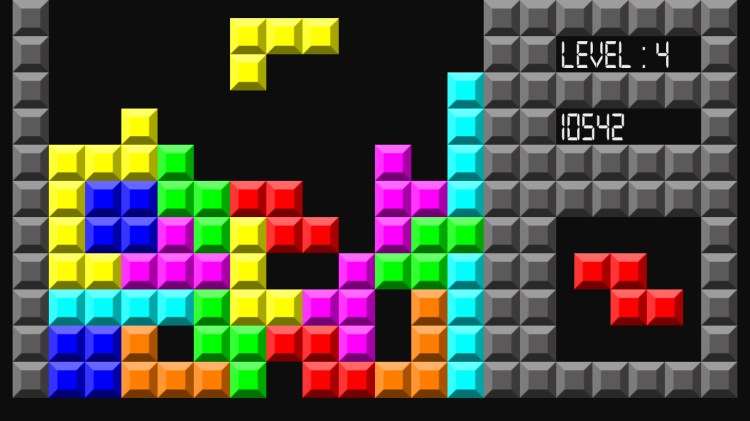You have no control. You are a cluster of systems cohabitating a space with the systems of other people and the physical world. The boundless number of variables that determine your second-to-second existence is incomprehensible.
And that’s why we play games.
I don’t like the notion that diving into a video games is about escapism — although, of course, it is just that for me and many others. But what are we escaping from and to when we leave reality behind? What do we find in the turn-based historical strategy game like Civilization VI or a virtual-reality sculpting experience like Tilt Brush? The answer is that we find capacity to control systems that are far too complex to even recognize as tangible forces in our waking lives.
The Tetris metaphor
Think about Tetris, and think about your responsibilities as an adult. In both, you have a set of abilities. You also have something unseen that is relentlessly throwing obstacles at you. You use your abilities to identify, develop strategies, and then deal with those obstacles appropriately, but your work is never done. The challenges never stop, and even as you become more skilled at dealing with them, they start coming faster while you are still dealing with a backlog of problems that you never swept away in the first place.
The difference between your life and Tetris is buried in a quote you might find on its retail packaging if this Russian import were the kind of game that you’d still buy in a store: “It’s easy to understand but difficult to master.” By comparison, life is difficult to understand and impossible to master. Masters of life only exist in our mythology.
But we can simulate what it feels like to “understand and master” in something like Tetris. Games present us with simplified problems and the simplified tools to deal with them. In the end, we still all lose at Tetris, but you need the threat of failure to give you stakes. You need to feel that the control you are practicing matters.
Virtual life
Virtual reality should be the ultimate escape, right? But I think that it doesn’t feel that way for a lot of people specifically because today’s VR experiences are not like Tetris. When people complain that VR still feels like “demos and experiences,” they mean we still haven’t figured out how to marry the best parts of the technology — simulated presence — with the aspects of gaming that enable us to test our capacity to control interactive systems.
But people are still excited about VR because of the potential off apps like Tilt Brush, Google’s three-dimensional painting plaything that turns all of the space around you into a canvas for creation. In that app, the traditional limitations of painting or sculpting have no meaning. Realizing that you can instantly change the color or scale of your work depending on whatever your imagination demands is intoxicating because you are now fully in control and physics can go to hell.
Everyone who uses Tilt Brush experiences that revelation. And for many of us, it makes us wonder how we can test these capabilities against a new set of restrictions. Artists will figure out what VR’s Tetris is — but for now, experimenting with unfettered control is still something wonderful.
The Tetris lesson
But while we wait for VR to evolve, life is still happening around us. And while I think I understand why we play games, it’s more difficult to figure out if that escapism is good for us.
I like to to think that I take something away from me when I put down my games that can aid me in my life. That doesn’t mean figuring out more efficient ways of stacking old junk into a closet because of the hours I put into Tetris — although I’m pretty great at that. Instead, I think it tells me to focus my energy on what little in the world I do have control of. That’s not a new idea, but it’s one that games have helped me come to terms with.
Tetris is to the complexity of existence as “I Will Always Love You” is to the complexity of human emotions. If you want your life to be like Tetris or “I Will Always Love You,” you’re probably not going to fare well in life or relationships.
But if you use Tetris and “I Will Always Love You” to experiment with your capabilities and your feelings in a safe way with the purpose of understanding them, then maybe you can get better at applying them in the impossible-to-master game of life.
VentureBeat's mission is to be a digital town square for technical decision-makers to gain knowledge about transformative enterprise technology and transact. Learn More

